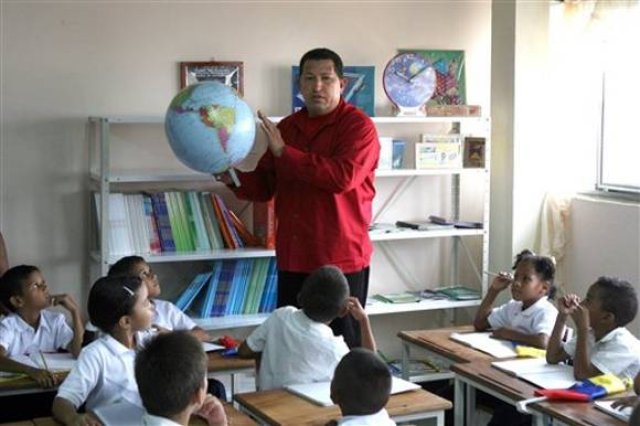
In a move that will provide important savings for low-income families, the Venezuelan government unveiled a plan on August 15 to distribute 12 million new textbooks to primary school students around the country in the coming scholastic year.
Education minister Maryann Hanson said: “The objective of this program is to ensure that those with less economic resources can count on having textbooks in order to guarantee education as an inalienable human right.”
The new textbooks represent an investment of more than US$45 million.
Hanson said the ability to produce the books locally is the product of a combined effort of the different printing presses of various government agencies “working together for the benefit of the people”.
Savings for parents and guardians of public school students, the minister said, would range between $23 and $46 for each book.
Venezuelan President Hugo Chavez referred to the educational advances in Venezuela as something that “could not be done under capitalism”.
“This is the difference between capitalism and socialism. It’s not just about prices but rather about the value of things.
The Canaima Program, another flagship educational initiative of the Chavez government, has provided more than 760,000 grade school students around the nation with free mini-laptop computers.
Over the past 12 years, the Chavez administration has implemented a number of highly successful educational reforms that have succeeded in wiping out illiteracy in the country and solidified Venezuela’s ranking as one of the countries with the highest university enrollment rates in the world.
These programs range from pre-school to university level classes and have been deployed throughout the country in the most remote rural areas as well as the most populated urban shantytowns with the goal of providing a quality education to all citizens.
Hanson said the dropout rate for primary and middle school students fell by 50% over the past 12 years, as has the rate of failure for students.
[Abridged from www.venezuelanalysis.com.]